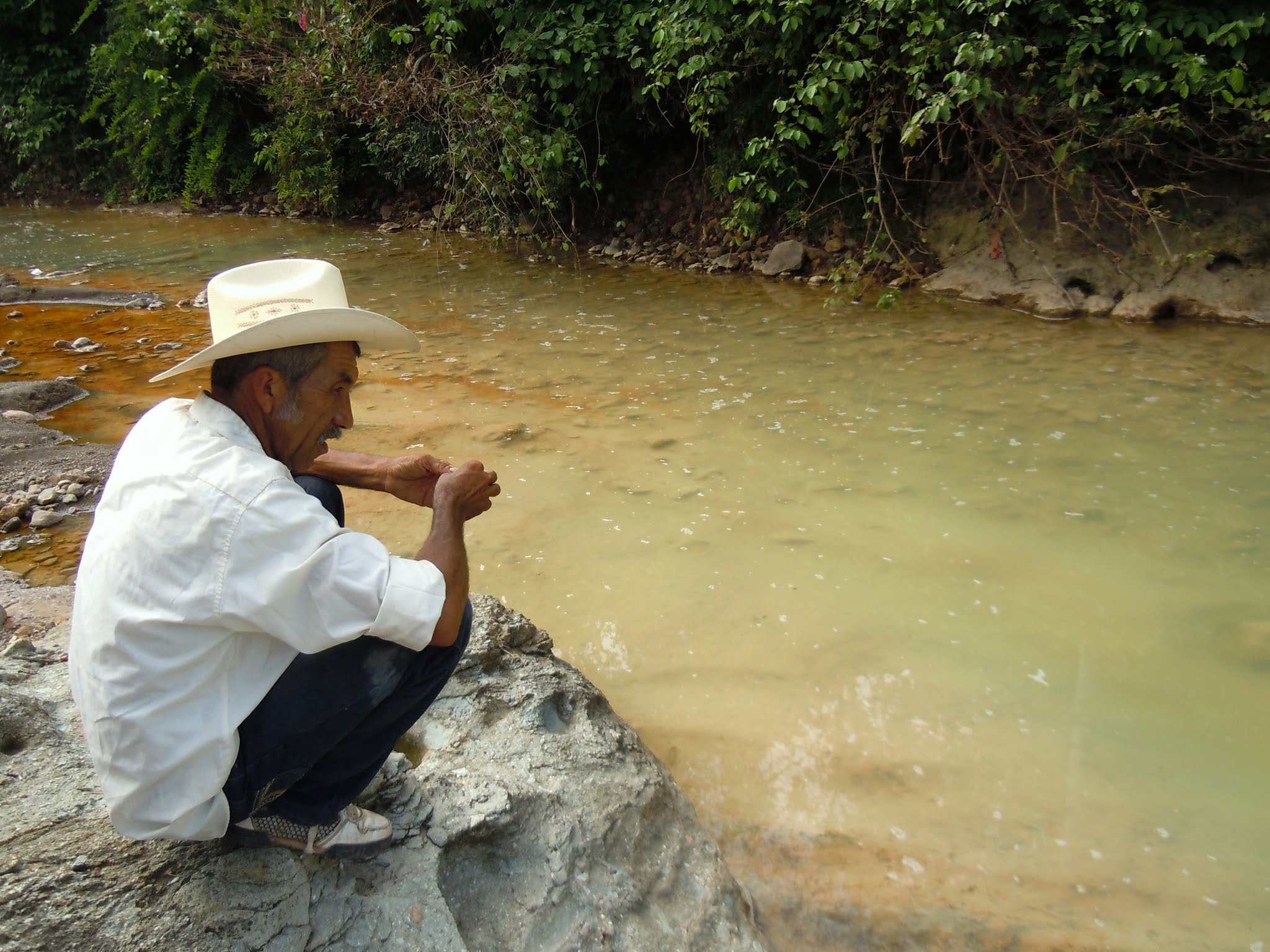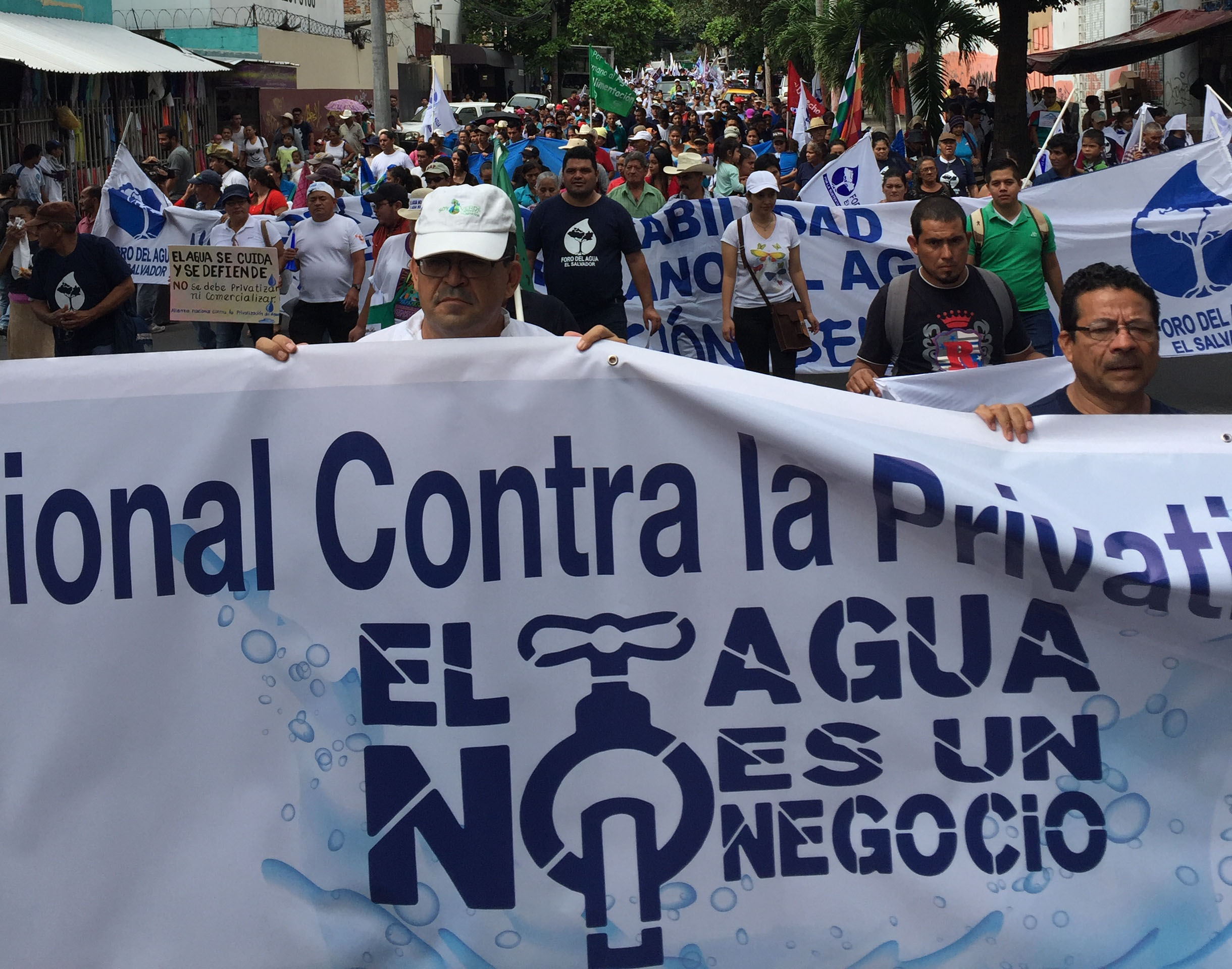Andres McKinley
 The profound crisis of water resources in El Salvador, in terms of quality, quantity and access, is widely recognized and scientifically documented by national as well as international experts. The main cause of the current crisis is poor water management (pollution and over-exploitation) due to the lack of policies (General Water Law), practices and programs that ensure good governance. This problem affects us all in our daily lives, but it is the poor who suffer the most, especially women and children.
The profound crisis of water resources in El Salvador, in terms of quality, quantity and access, is widely recognized and scientifically documented by national as well as international experts. The main cause of the current crisis is poor water management (pollution and over-exploitation) due to the lack of policies (General Water Law), practices and programs that ensure good governance. This problem affects us all in our daily lives, but it is the poor who suffer the most, especially women and children.
Toxic waste and heavy metals from industry, poisonous chemicals from agricultural runoff and untreated sewage pollute more than 90% of our surface waters. At the same time, over-exploitation of aquifers generates water shortages for ecosystems and communities throughout the country.
This alarming situation has led international organizations, such as the Economic Commission for Latin America and the Caribbean (ECLAC), the Global Water Partnership (GWP) and the Latin American Water Tribunal, to declare the country on the verge of water stress, meaning insufficient water resources to meet human demand. Confirming this view, a study by the Office of the Ombudsperson for the Defense of Human Rights in El Salvador concluded, in 2016, that El Salvador has a life expectancy as a viable country of approximately 80 years if we do not change dramatically the way we manage our water resources.
The scientific evidence is supported by the experience of thousands of inhabitants of urban slums who spend months without access to water, of poor communities in the rural sector who depend on increasingly scarce local water sources, of small scale farmers who lose their harvests with increased frequency to prolonged drought and of women and children who spend much of their day in search of this vital liquid.
Despite this worrisome scenario, senior representatives of the National Association of Private Enterprise (ANEP), in a recent hearing with the Committee on Environment and Climate Change of the Legislative Assembly (and in public debates with this author), have insisted that the water crisis in El Salvador is a myth promoted by the governing party and its sympathizers to attain the urgent approval of a General Water Law.

From a business perspective, the position of ANEP has logic. Large scale enterprise in El Salvador has not suffered from water scarcity. It has not lived this nightmare. Rather, it has been, and continues to be, an important causal factor of the current water crisis through a model of development and urbanization based on the destruction of the environment, social exclusion and the accumulation of wealth for small elite groups at the cost of natural resources, especially water. A few examples:
- In the historic case of the plantation, El Espino, just north of El Salvador´s capital city, hundreds of acres of forest and coffee trees providing an important source of oxygen for greater San Salvador, helping to maintain a more balanced climate for the capital city and filtering millions of cubic meters of water per year to recharge strategic aquifers, were converted by a national investment group into huge shopping centers;
- The Record battery factory in the community of El Sitio del Niño utilized highly toxic raw materials for years, polluting the environment (especially water) and endangering human health. The factory was closed by order of the Ministry of Health in 2007, when 369 employees and over 7000 people living in six surrounding communities, were found to be suffering from dramatically high levels of lead poisoning. A study carried out by the environmental NGO, UNES, estimated the total cost of environmental damage at over 4 billion dollars;
- Luxury housing projects with their swimming pools and golf courses in areas with water scarcity, such as the Encanto Residential Country Club of Zaragoza, have left thousands of inhabitants of nearby communities without sufficient water for their most basic needs;
- Large producers of sugar cane continue to over-exploit underground water sources, even in years of severe drought, generating record levels of sugar exports for El Salvador while rural communities suffer from shortages;
- The strategic aquifer of Nejapa provides potable water to slightly less than half of the population of greater San Salvador. However, the transnational corporation, Constancia/ SabMiller, a subsidiary of Coca Cola, threatens the aquifer with over-exploitation for the production of beer and more than 100,000 cartons of coca cola every day. Experts project that, at the current rate of extraction, this aquifer will be exhausted in approximately 30 years. Meanwhile, the 30,000 inhabitants of the municipality of Nejapa receive water only 2-3 days a week.
 Members of the National Alliance Against the Privatization of Water march towards the Legislative Assembly of El Salvador. Photo: P. Cabezas.
Members of the National Alliance Against the Privatization of Water march towards the Legislative Assembly of El Salvador. Photo: P. Cabezas.
To protect the business interests of its membership, ANEP has insisted on private sector control of any institutional structure which might emerge for the management of water resources in El Salvador. This has been a key obstacle in the effort to build good governance in the water sector over the past 12 years. As an alternative, a broad-based National Alliance Against the Privatization of Water, the National Water Forum, environmental groups, local water boards, the Catholic Church, the Jesuit-run Central American University José Simeón Cañas (UCA), protestant churches, the National University, the Office of the Human Rights Ombudsperson, and other key actors, argue that it would be illogical to put water in the hands of those who have contributed so much to the current crisis and insist that the regulation of water resources should be in the hands of the State (central government).
- In the midst of this increasingly conflictive debate, it is important to reflect on the basic principles that should guide our efforts to attain responsible water legislation capable of assuring equitable, efficient and sustainable management of water resources in El Salvador: Right based focus: Water is a source of life. In this regard, it is a public good and a fundamental human right, recognized as such in 2010 by the United Nations.
- The predominant role of government in water management: If we recognize water as a public good and as a basic human right, it is obvious that the State (central government) has the primary obligation to manage it and guarantee access to this essential resource in an equitable, efficient and sustainable manner for the entire population. A study recently presented by the UCA on the Institutionality of Water in Latin America shows that no country on our continent has a governing body for water management dominated by the private sector. In fact, no country in the world has the rectory of water in private hands.
- Citizen participation: The growing water crisis in El Salvador is complex and requires effective and integral solutions. This challenge, in turn, requires the active and informed citizen participation. Along with a State-controlled governing body for water management, it is important to guarantee a broad, permanent and dynamic space for the effective participation of the citizens as stakeholders (including the private sector) with the power to influence decision-making on policies, practices and programs.
- A strong local focus on watersheds: Solving the dramatic water crisis facing El Salvador will depend on what happens at the local level - at the level of the watershed.. We can have the best national water policy in the world and fail in our efforts to build good governance if there is no change in the way we manage water at the local level.
The debate on water in El Salvador is at a definitive moment, influenced by a complexity of economic, social, political, environmental, party and electoral interests. It is time now to recognize, in the highly polarized political environment of the country, that this issue, for El Salvador, is a national issue, of life and death, challenging us to find a new way of doing politics, to seek a more honest dialogue based on facts and realities, and to achieve consensus focused on the common good.
_____________________
Andrés McKinley is a water and mining specialist at the José Simeón Cañas Central American University (UCA). He has a Master's degree in Health Administration and has been working on sustainable development issues in the US, Central America, South America and Africa for 50 years.
